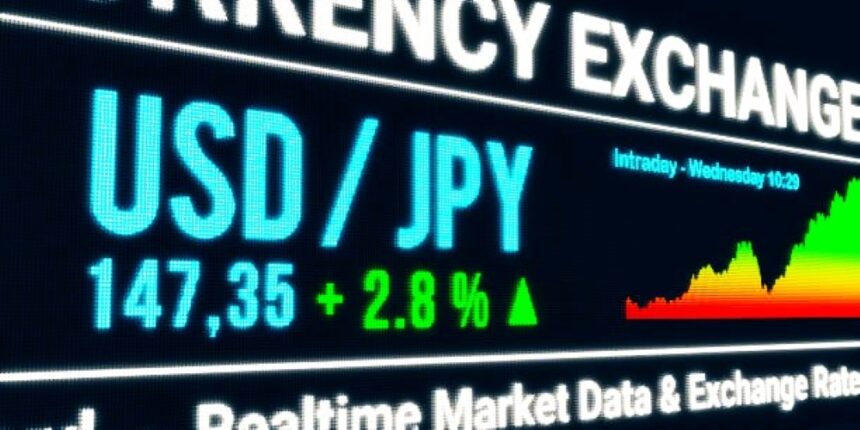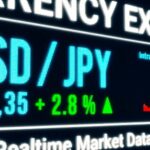Japanese yen falls as a result of hawkish sentiment surrounding the Fed’s decision to keep interest rates high for an extended period.
The Japanese Yen (JPY) fell for the fourth consecutive session on Tuesday, owing to the substantial interest rate differential between Japan and the United States. This pressure on the yen has boosted the USDJPY pair. Market opinion suggests that the Bank of Japan (BoJ) may hike interest rates earlier than expected in light of the weak JPY.
Japanese Finance Minister Shunichi Suzuki expressed concerns about the negative effects of the weak JPY.
Shunichi Suzuki, the Japanese Finance Minister, raised alarm over the detrimental repercussions of The weak yen. Suzuki also stated that market debates are centered on rising long-term interest rates. With a focus on proper national debt policy in Japan. There is hope that pay increases will outpace inflation. He added that he closely monitors FX movements.
The US dollar remains solid despite rising US Treasury yields.
The US Dollar (USD) is trading slowly, as there were no notable economic data releases from the United States (US). Higher US Treasury yields have boosted the greenback. The US Federal Reserve (Fed) remains concerned about inflation and the potential of interest rate decreases in 2024.
Daily Market Movers: Japanese Yen falls owing to aggressive Fed.
According to a BoJ poll released on Monday, over 70% of enterprises have cited negative effects from the BoJ’s 25-year-long monetary easing initiatives. , citing a weak JPY. That raised import expenses. However, about 90% of the enterprises acknowledged benefits from the Bank of Japan’s sustained easing. Such as cheap borrowing costs. Among Japan’s large manufacturers, exchange rate stability emerged as the most important issue in the central bank’s monetary policy.
The yield on the 2-year Japanese government bond is 0.34%, according to FactSet. This means policy rates are expected to reach 0.25% in the second half of the year and 0.5% the following year.
On Monday, Loretta Mester, President of the Federal Reserve Bank of Cleveland, told Bloomberg. That she no longer believes three rate cuts in 2024 are reasonable. Mester stated that inflation risks are weighted to the upside and that there is no Given the economy’s resilience, there is no reason to spend more time collecting inflation data.
According to the CME FedWatch Tool, the probability of the Federal Reserve enacting a 25 basis point rate drop in September has increased slightly to 49.6%, up from 48.6% a week earlier.
Market sentiment indicates that the BoJ may limit bond purchases at its June policy meeting. BOJ Governor Kazuo Ueda also said that the central bank has no immediate intentions to divest its ETF holdings.









